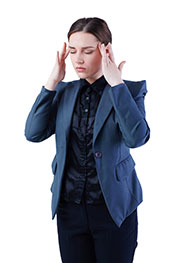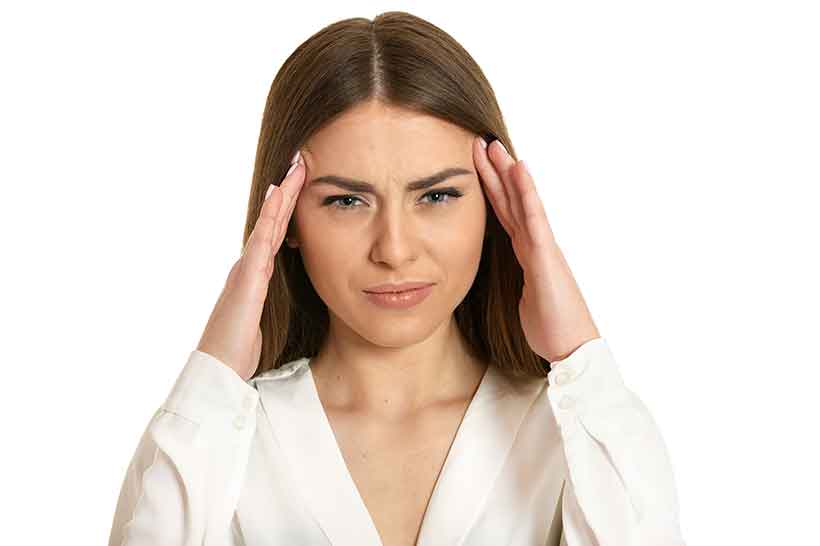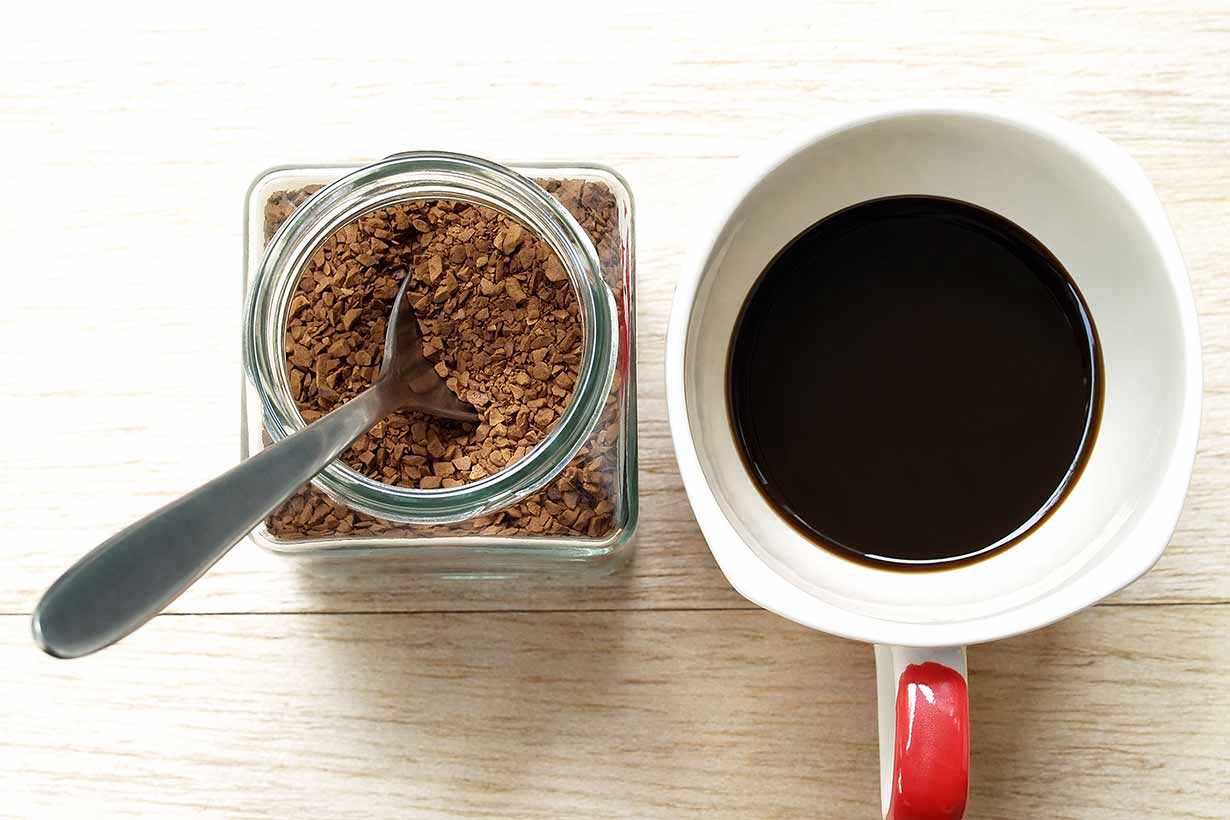
Coffee is one of the most popular drinks in the world.
It tastes delicious, it’s probably good for our health, and it’s very popular at social gatherings and for bringing people together.
However, quitting coffee can potentially have withdrawal side effects.
For some people who wish to quit coffee, there are some unpleasant caffeine withdrawal symptoms to deal with.
This article looks at the issue in detail and examines what these withdrawal symptoms are, why they happen and how we can deal with them.
What is Caffeine Withdrawal?
Firstly, it is important to remember that caffeine is actually a drug.
Not just any drug either; caffeine is the most widely consumed drug in the world, with over 85% of people consuming at least one caffeinated drink per day (1)
Caffeine withdrawal refers to the side effects many people experience upon the cessation of caffeine/coffee.
These effects may range from mild to severe and typical symptoms include anxiety, fatigue, and headaches (2).
How Long Does Caffeine Withdrawal Last?
Commonly, these withdrawal effects last for 2-4 days, and they are most severe about 24 hours after the last caffeine dose.
Studies show that the severity depends on the prior caffeine intake and for how long it had been sustained.
That said, we all metabolize caffeine differently, and this may also influence how long it takes to overcome withdrawal (3).
For instance, in some cases, there may be no symptoms whatsoever. In other cases, individuals may suffer for over a week (4).
Caffeine Withdrawal is an Official Recognized Disorder
Perhaps surprisingly, caffeine withdrawal is an officially recognized disorder.
In 2013, the American Psychiatric Association released the 5th volume of their Diagnostic and Statistical Manual of Mental Disorders (DSM-5).
Notably, this edition officially recognized caffeine withdrawal as a mental disorder for the first time (5).
10 Common Caffeine Withdrawal Symptoms
What kind of issues should you expect if you experience caffeine withdrawal?
Here is a look at the ten most-reported symptoms.
1. Headaches

Headaches are the primary caffeine withdrawal symptom for the majority of people. In fact, more than 50% of people who give up their coffee habit experience these headaches.
Depending on the severity, these headaches can be a mild nuisance or painful and debilitating. Interestingly, even consuming slightly lower amounts of caffeine than what people are used to may lead to these headaches.
To understand why these headaches happen, the first thing to note is that caffeine has cerebral vasoconstriction properties. In plain English, this means that caffeine consumption causes the blood vessels in our brains to narrow (6).
Ordinarily, this could be seen as both a positive and negative effect. Positive because it increases caffeine concentration (and beneficial impact) in our blood, but negative due to the blood pressure-raising effect this would have.
However, tolerance to caffeine happens quickly through the upregulation of available adenosine receptors. In turn, this has a compensatory effect and promotes vasodilation (widening of the blood vessels) (7).
When we suddenly quit coffee/caffeine, habitual users will still have a higher number of these adenosine receptors.
Despite this, the effect they were compensating for in the first place will no longer be present, and this is thought to be why these withdrawal headaches happen.
2. Fatigue / Reduced Energy Levels
Caffeine is a central nervous system (CNS) stimulant.
First, this doesn’t only mean that the drug awakens us. Caffeine also gives us more energy – for everything we do.
For example, caffeine increases energy availability and decreases our perceived exertion during physical activity. As a result, a cup of coffee can improve physical performance and make us feel like we can do more (8).
It is, therefore, no surprise that a side effect of quitting coffee is fatigue and reduced energy levels.
The previous energy levels provided by morning coffee(s) are no longer present, giving rise to feelings of drowsiness and lack of energy.
3. Lack of Focus and Difficulty Concentrating

Another potential side effect of stopping our caffeine habit is a lack of focus and difficulty concentrating.
The reasons for this are again down to caffeine’s stimulant properties.
Notably, a wide range of studies demonstrates that coffee consumption improves focus, concentration, and cognitive performance.
Furthermore, research shows that caffeine can efficiently compensate for reduced mental and physical capacity following poor sleep (9, 10).
These above findings make coffee a popular drink for early-morning meetings; it helps us clear our minds and concentrate. This effect would be especially desirable for those not getting adequate sleep.
When we stop drinking coffee, we feel the loss of these beneficial energizing effects, which leads to difficulty concentrating/focusing.
Although there are numerous coffee alternatives, they are not coffee.
4. Mental Fog
Mental fog is very similar to the lack of focus and concentration difficulties.
However, a foggy mind is a typical caffeine withdrawal complaint.
This symptom refers to how some people feel like they can’t keep a clear mind in the days after halting their caffeine intake.
A foggy mind can cover a range of different symptoms ranging from confusion and forgetfulness to feelings of being disorganized and fatigue.
Due to withdrawal effects such as these, many people trying to give up coffee start drinking it again (11).
5. Irritability and Moodiness

Studies have found that people experiencing caffeine withdrawal are more prone to mood swings and irritability.
However, this is not unique to caffeine.
For example, people trying to give up tobacco and other vices are also renowned for exhibiting irritability.
An irritable mood is one of the 14 well-described caffeine withdrawal symptoms, and an empirical review accepted that irritability comes under the 10 (out of 49) that meet adequate validity criteria to be called a sign of withdrawal (12, 13).
6. Depression
Coffee is not only a stimulant that gives energy, it also makes us feel good.
The research clearly shows that caffeine elevates our mood, particularly in doses of over 200 mg.
Additionally, higher doses have even been linked to “feelings of euphoria” (14, 15).
Therefore, it makes sense that cutting out coffee may lead to feelings of depression in those who are accustomed to this better mood.
Feelings of depression may depend on the individual, the dose of caffeine they are used to, and the way they metabolize it.
Despite this, it is one of the most commonly reported side effects of withdrawal from caffeine use.
7. Drowsiness/Difficulty Getting Things Done
Difficulty getting things done is one of the ten most commonly reported symptoms of withdrawal from coffee.
Personally, I think it is closely related to the lack of focus/energy levels.
If we have less energy, we will feel more lethargic and have difficulty getting things done.
There is also evidence that caffeine withdrawal may hurt driving performance and safety, due to increased sleepiness (16).
In fact, a recent study showed that caffeinated drinks have a positive effect for long-distance truck drivers.
This research demonstrated a significant 63% reduced risk of crashing for the drivers who consumed caffeine compared to drivers who didn’t (17).
8. Anxiety
Interestingly, caffeine consumption can give some people feelings of anxiety, especially when they overdo it.
However, the reverse is true – coming off caffeine can cause the same thing.
Notably, research was being conducted into this issue all the way back in 1980, with a clinical trial demonstrating that caffeine abstinence increased levels of tension (18).
Further research has been done in recent years too and ‘caffeine withdrawal anxiety’ is a well-accepted phenomenon (19).
9. Flu-Like Symptoms
Surprisingly, some people have shown signs of flu-like symptoms such as nausea and muscular stiffness after caffeine withdrawal (13).
As previously mentioned, the severity of withdrawal effects very much depends on the dose (as well as the individual).
Such flu-like side effects are likely rare and constrained to those who previously consumed large quantities of caffeine.
10. Decreased Mental Alertness/Sharpness
Caffeine has a lot of evidence behind it that shows how it can positively influence cognitive health and decision-making skills (20, 21, 22).
These benefits are more apparent in sleep-deprived individuals and those suffering from mental health issues.
Refraining from caffeine consumption has a temporary reverse effect in the first few days, with mental sharpness falling.
After a few days, this typically normalizes.
Reducing the Intensity of Caffeine Withdrawal Symptoms
If we want to quit coffee or caffeine in general, then how can we do it in a way that doesn’t make us feel like we’re dying?
While “dying” might be an exaggeration, these withdrawal symptoms can make people feel terrible, so it’s important to come off caffeine in a way that doesn’t cause too many problems.
Fortunately, studies have looked into this issue, and they offer some guidance on how to avoid the worst effects.
So, what is the best way to avoid caffeine withdrawal?
Cold Turkey vs. Gradually Tapering Down
The most common recommendation that researchers have is not to suddenly quit coffee/caffeine in one go.
Instead, slowly lowering the daily dose of caffeine lets us reduce and eventually remove it with a much lower risk of withdrawal symptoms.
Cutting back slowly in this way removes the possibility of suddenly switching from large to small doses.
For example, if someone currently consumes five cups of coffee a day, they could be ingesting around 500 mg of caffeine per day.
Large doses such as this have a more pronounced effect, and suddenly switching to no caffeine from such a high amount would make side effects likely.
A Better Option
Here is an example of how someone consuming 5 cups of coffee per day could slowly cut down on their caffeine consumption.
Although some symptoms may still occur, there would be a minimized risk of significant withdrawal effects.
- Day 1: four cups of coffee (approx 400 mg caffeine)
- Day 2: four cups of coffee
- Day 3: three cups of coffee (approx 300 mg caffeine)
- Day 4: three cups of coffee
- Day 5: two cups of coffee (approx 200 mg caffeine)
- Day 6: two cups of coffee
- Day 7: one cup of coffee (approx 100 mg caffeine)
- Day 8: one cup of coffee
- Day 9: one cup of black tea
- Day 10: one cup of green tea
- Day 11: no caffeinated beverages
Staying Hydrated
Drinking enough fluids and staying in a good state of hydration can help to minimize the severity of headaches.
Sleep
Several symptoms related to caffeine withdrawal affect our focus, mental sharpness and better sleep quality can improve these.
Furthermore, sleeping through a headache can be a good way to avoid the discomfort.
Final Thoughts
Most research on coffee is positive, and the drink tastes delicious.
For those who can drink coffee without problems, then there’s no reason to stop drinking it.
However, for those who want to quit/reduce their caffeine consumption, slowly but surely is the best way.
By reducing our intake of caffeinated beverages slowly, we have the best chance to avoid uncomfortable caffeine withdrawal symptoms.








